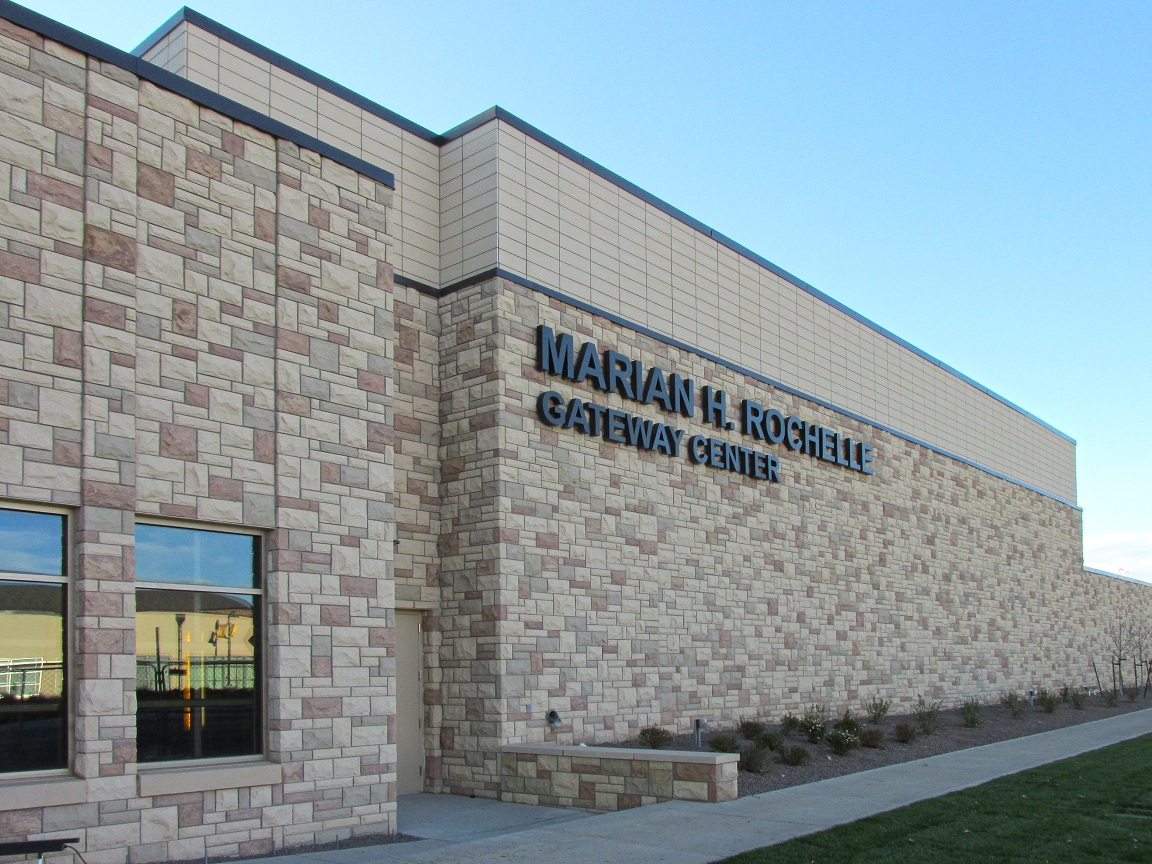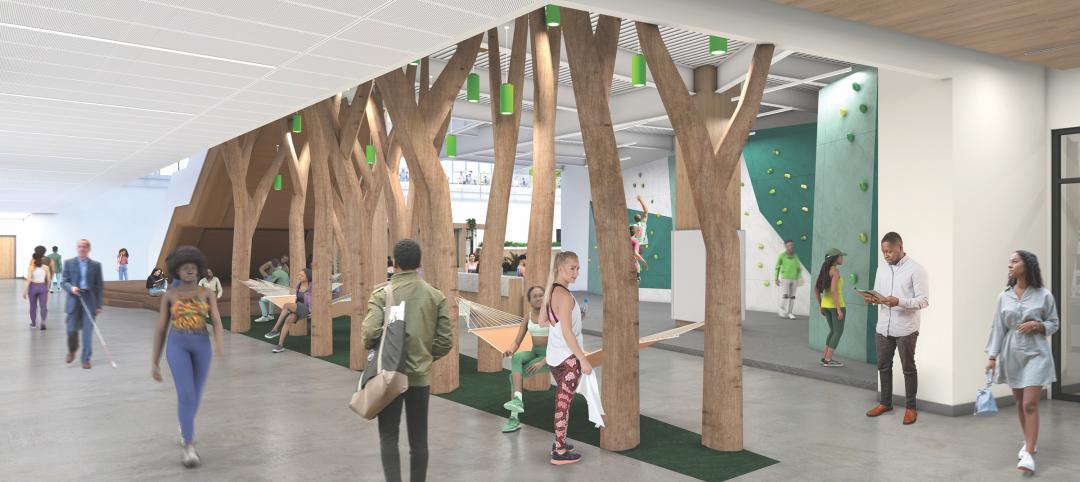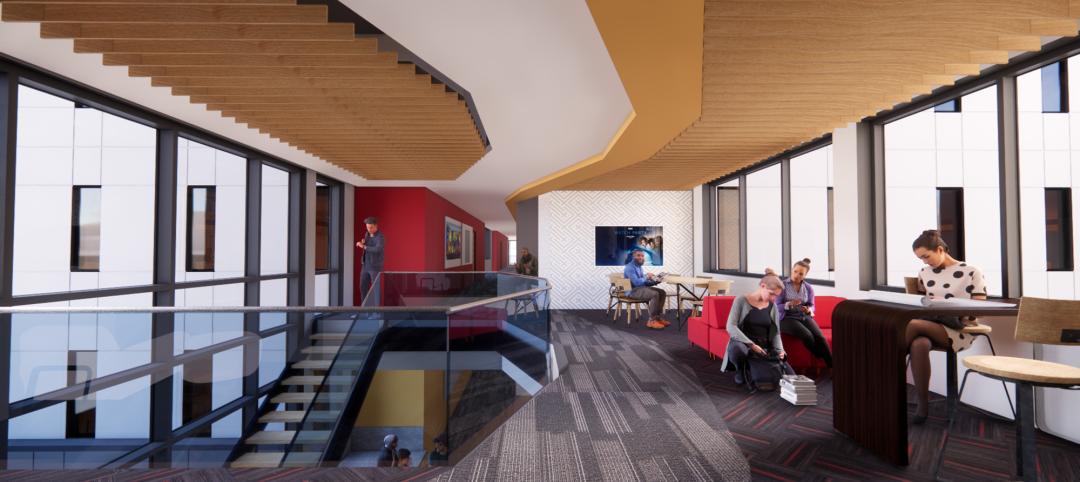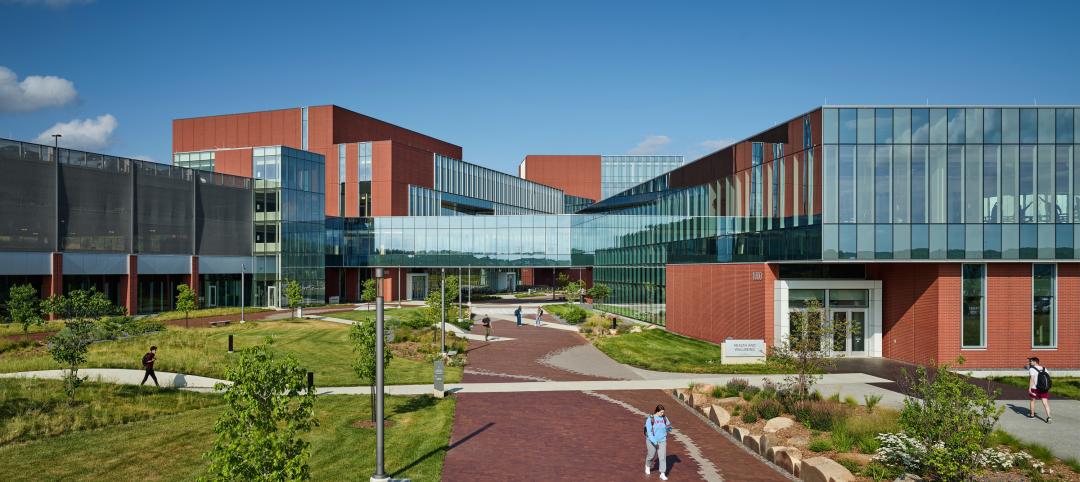With plans beginning in 2008, University of Wyoming (UW) set out to build an extraordinary welcome center (perhaps unique in the country), which embodied, in every detail, the UW brand. As the first point of contact, planners envisioned a "wow factor" that would awe everyone – from visitors, students, families, supporters, and the community alike. Completed in late 2014, the Gateway Center certainly delivers a stunning and consistent experience, from the fundamental architectural elements to the finest details woven throughout.
The state-of-the art Marian H. Rochelle Gateway Center successfully fuses the university’s time-honored brand qualities with a leading-edge technological infrastructure. Designed by Pappas & Pappas Architects and DLR Group, the center combines the traditional with the contemporary and provides a spectacularly visual venue, which incorporates welcome areas, offices, ballrooms, conference rooms, exhibits, and more.
The center gracefully blends historical elements with high-tech tools in a true melding of the traditional and contemporary. Visitors experience the region’s culture through artistic displays, including the 20-foot bronze statue of Steamboat (Wyoming’s iconic bucking horse) and a robust heritage center; at the same time, guests enjoy the dramatic three-story atrium, dynamic displays, free Wi-Fi, and a 30-screen digital wall, as well as many other interactive features.
Before these finer details took shape, the building’s exterior needed to provide the impact UW envisioned – the ‘wow factor’. As the front door of the university, two vital requirements challenged the center’s designers: incorporating the historical sandstone as the primary building element and utilizing the UW brand colors in a visual and lasting way.
From 1886 through to the early 1970s, the university utilized the same sandstone quarried locally near Laramie, which became a signature look. When the quarry closed, a new natural stone supply was difficult to source, given inventory and color limitations. Fortunately, UW discovered that Arriscraft manufactures building stone which mimics natural sandstone in appearance and performance. Since 2003, Arriscraft has supplied a custom color blend as the signature sandstone for UW buildings.
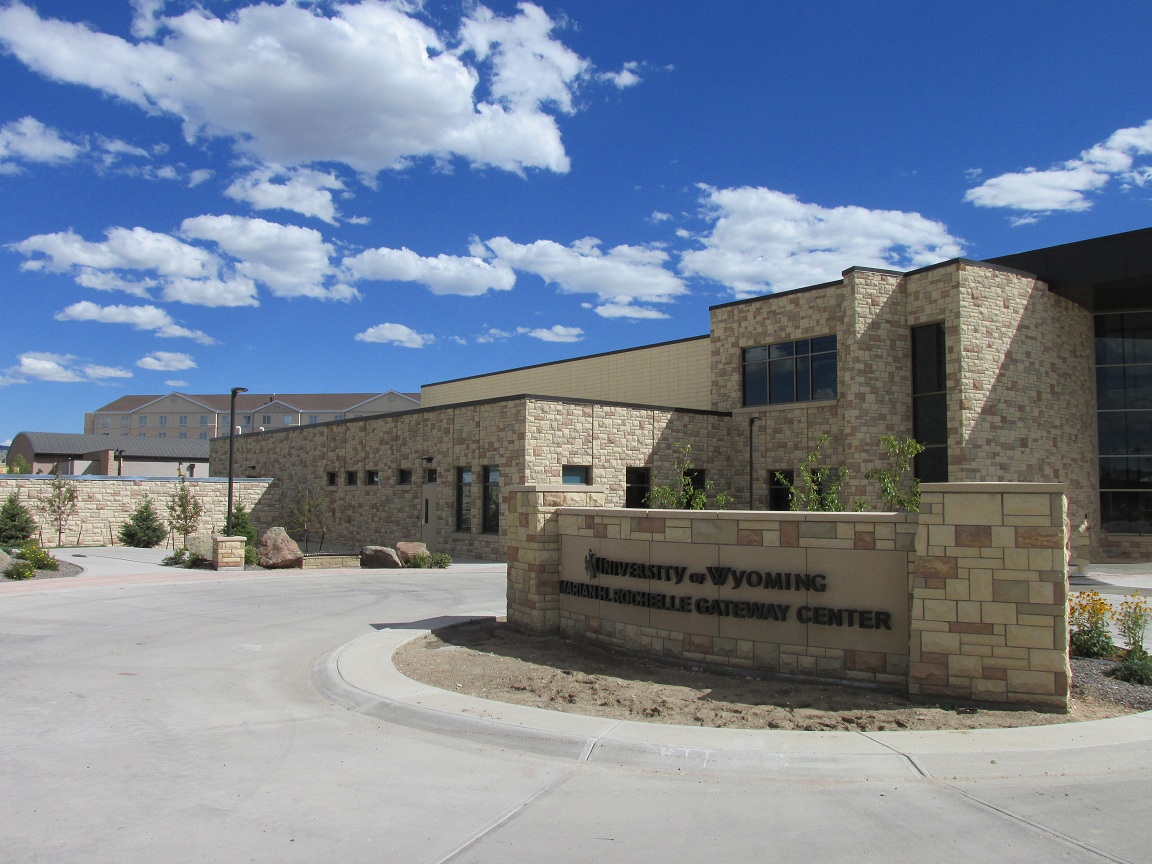 Renaissance® Masonry Units in Garnet, Suede and Café colors (rocked finish).
Renaissance® Masonry Units in Garnet, Suede and Café colors (rocked finish).
Stone supplier, BrickStone Inc. and project leader Chet Lockard (of Project Guide Services) collaborated with UW to find not only a sandstone match, but also a palette that was a perfect representation of the UW brand. According to Mr. Lockard, “Only Arriscraft could dial in the color we needed. We wanted to create more excitement for the Gateway Center and they have a great range of standard colors, which also saved money on the project. The best thing about Arriscraft is that it’s no different than quarried stone, but it’s more [color] consistent.”
Careful to continue a very similar masonry pattern as existing buildings, Toby Marlatt, VP of Marketing and Communications at UW, helped create a 4” module pattern using Renaissance® Masonry Units in Garnet, Suede and Café colors in a rocked finish. The warm tan, red and brown tones combine to both brand the building and deliver the strong statement that the university was after.
The Renaissance® stone was continued throughout the interior of the Gateway Center, to maintain the rustic feel and provide the fundamental color palette for the interior design. In the interior atrium, ARRIS.stack thin stone covers the stunning 3-storey fireplace – a highly durable and impactful choice for this key visual feature.
Architect: Pappas & Pappas Architects and DLR Group
Interior Designers: R M Ruwart Design, Pear Workplace Solutions
General Contractor: Haselden Construction
Project Manager/Client Representative: Project Guide Services
Masonry Supplier: BrickStone Inc. (CO)
ABOUT ARRISCRAFT STONE
Arriscraft’s patented Natural Process technology uses only natural materials (plus certain colored pigments) and replicates how stone is created in the earth. This unique process creates masonry units, building stone and thin stone products with the aesthetics and durability of quarried stone, but in a manufactured format for standard installation and unlimited supply.
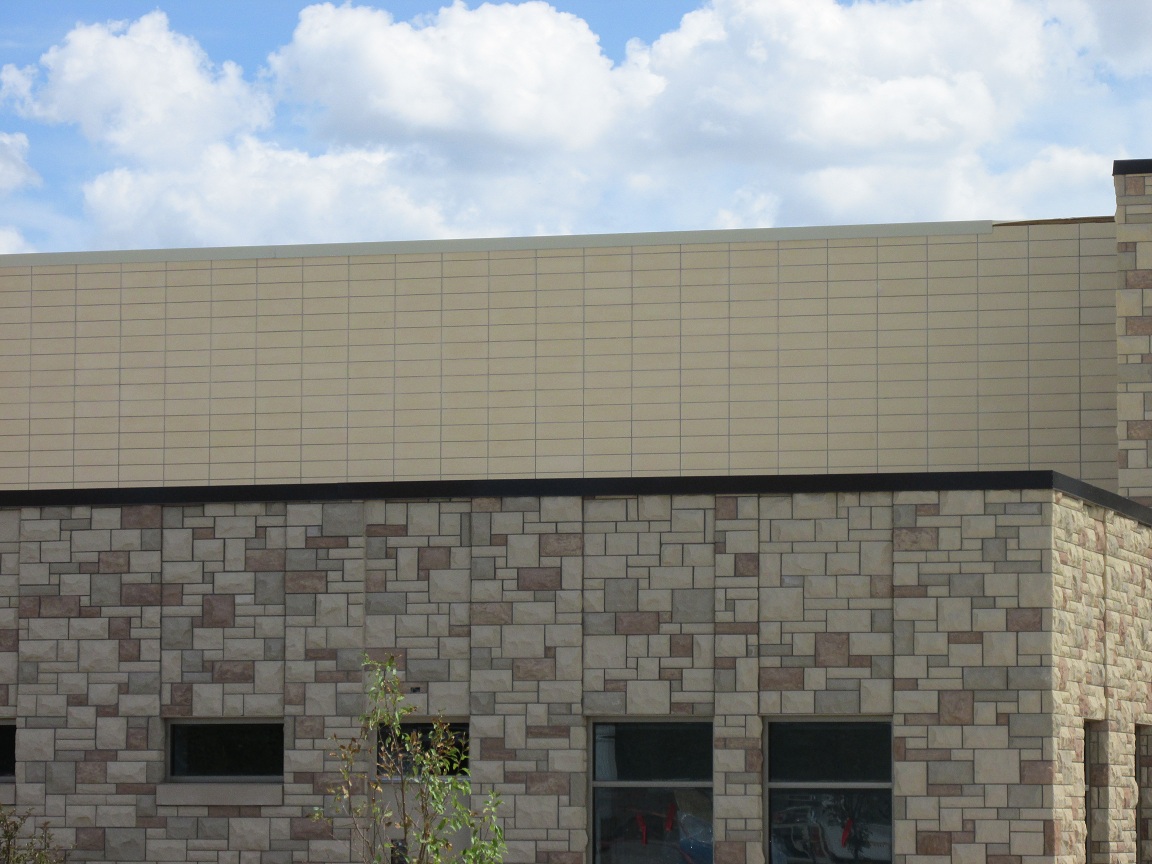 Renaissance® ARRIS.tile (thin stone) in 8” x 24” units, Suede color (smooth finish).
Renaissance® ARRIS.tile (thin stone) in 8” x 24” units, Suede color (smooth finish).
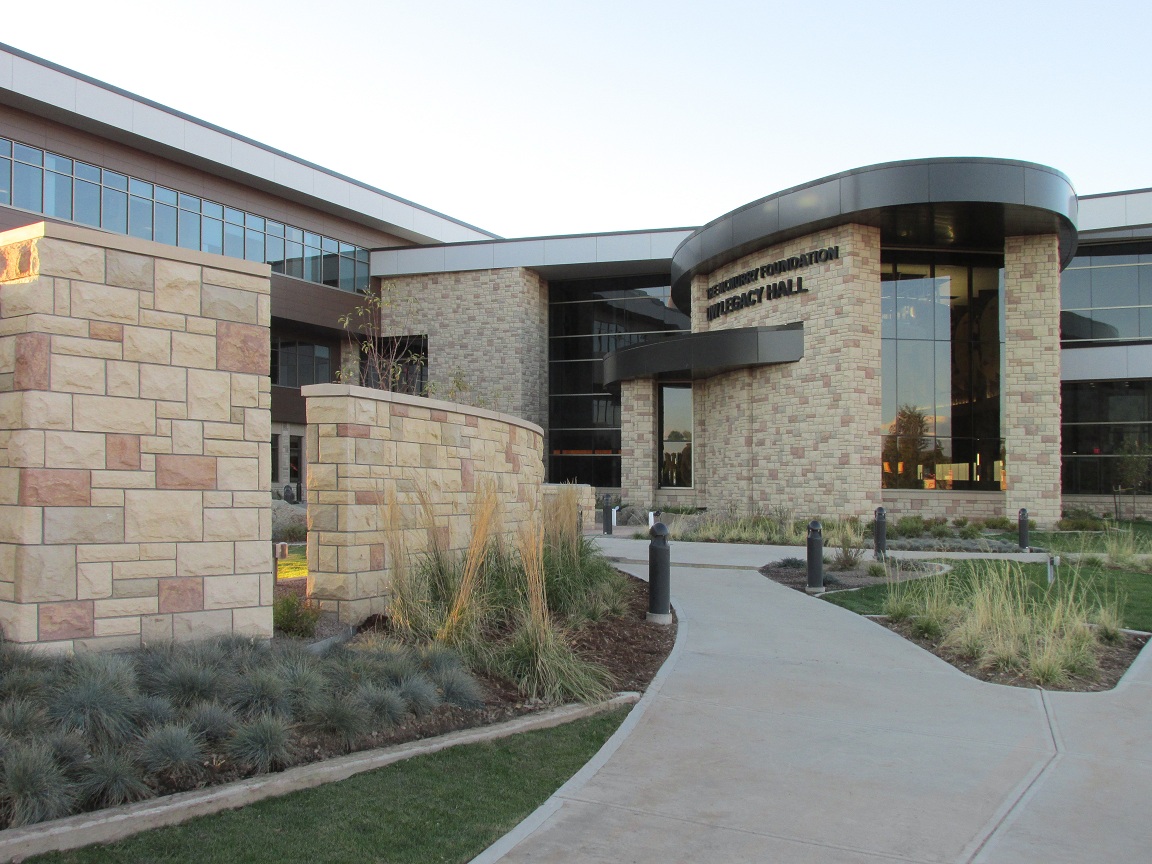 Renaissance® Masonry Units in Garnet, Suede and Café colors (rocked finish).
Renaissance® Masonry Units in Garnet, Suede and Café colors (rocked finish).
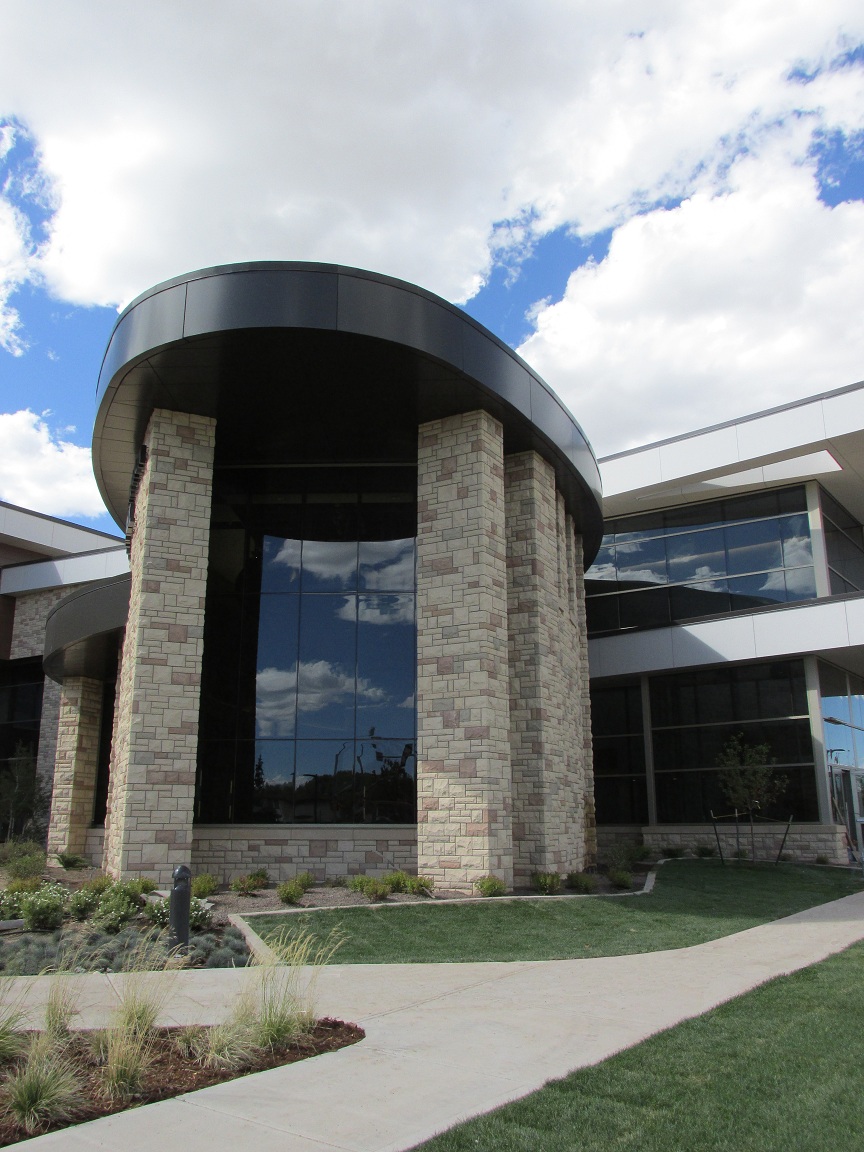 Renaissance® Masonry Units in Garnet, Suede and Café colors (rocked finish).
Renaissance® Masonry Units in Garnet, Suede and Café colors (rocked finish).
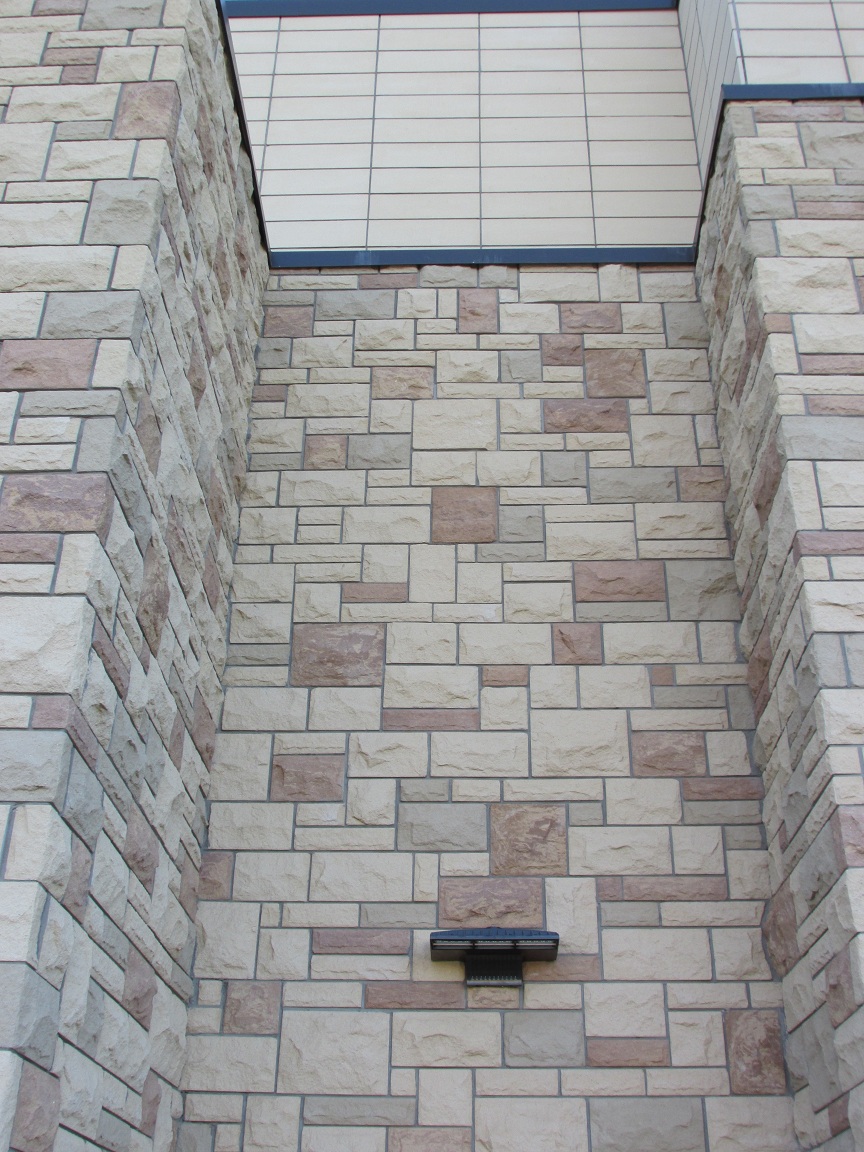
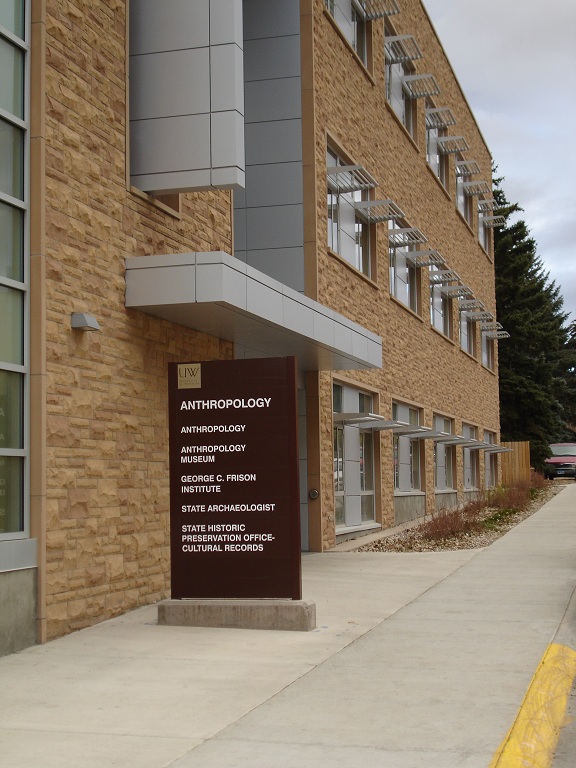 Custom color blend of Renaissance® Masonry Units on existing UW building. This image illustrates the "sandstone" match and custom blend developed for UW which has been the new standard stone since 2003.
Custom color blend of Renaissance® Masonry Units on existing UW building. This image illustrates the "sandstone" match and custom blend developed for UW which has been the new standard stone since 2003.
Related Stories
Libraries | Oct 30, 2024
Reasons to reinvent the Midcentury academic library
DLR Group's Interior Design Leader Gretchen Holy, Assoc. IIDA, shares the idea that a designer's responsibility to embrace a library’s history, respect its past, and create an environment that will serve student populations for the next 100 years.
Healthcare Facilities | Oct 18, 2024
7 design lessons for future-proofing academic medical centers
HOK’s Paul Strohm and Scott Rawlings and Indiana University Health’s Jim Mladucky share strategies for planning and designing academic medical centers that remain impactful for generations to come.
University Buildings | Oct 15, 2024
Recreation and wellness are bedfellows in new campus student centers
Student demands for amenities and services that address their emotional and mental wellbeing are impacting new development on college campuses that has led to recreation centers with wellness portfolios.
Higher Education | Oct 14, 2024
Higher education design for the first-gen college student
In this Design Collaborative blog, Yogen Solanki, Assoc. AIA, shares how architecture and design can help higher education institutions address some of the challenges faced by first-generation students.
University Buildings | Oct 9, 2024
Des Moines University Medicine and Health Sciences opens a new 88-acre campus
Des Moines University Medicine and Health Sciences has opened a new campus spanning 88 acres, over three times larger than its previous location. Designed by RDG Planning & Design and built by Turner Construction, the $260 million campus features technology-rich, flexible educational spaces that promote innovative teaching methods, expand research activity, and enhance clinical services. The campus includes four buildings connected with elevated pathways and totaling 382,000 sf.
University Buildings | Oct 4, 2024
Renovations are raising higher education campuses to modern standards
AEC higher ed Giants report working on a variety of building types, from performing arts centers and libraries to business schools. Hybrid learning is seemingly here to stay. And where possible, these projects address wellness and mental health concerns.
Museums | Oct 1, 2024
UT Dallas opens Morphosis-designed Crow Museum of Asian Art
In Richardson, Tex., the University of Texas at Dallas has opened a second location for the Crow Museum of Asian Art—the first of multiple buildings that will be part of a 12-acre cultural district. When completed, the arts and performance complex, called the Edith and Peter O’Donnell Jr. Athenaeum, will include two museums, a performance hall and music building, a grand plaza, and a dedicated parking structure on the Richardson campus.
Higher Education | Sep 30, 2024
Studio Gang turns tobacco warehouse into the new home of the University of Kentucky’s College of Design
Studio Gang has completed the Gray Design Building, the new home of the University of Kentucky’s College of Design. In partnership with K. Norman Berry Associates Architects, Studio Gang has turned a former tobacco warehouse into a contemporary facility for interdisciplinary learning and collaboration.
Higher Education | Sep 18, 2024
Modernizing dental schools: The intersection of design and education
Page's John Smith and Jennifer Amster share the how firm's approach to dental education facilities builds on the success of evidence-based design techniques pioneered in the healthcare built environment.
Libraries | Sep 12, 2024
How space supports programming changes at university libraries
GBBN Associate Sarah Kusuma Rubritz, AIA, uses the University of Pittsburgh's Hillman Library to showcase how libraries are transforming to support students’ needs.


